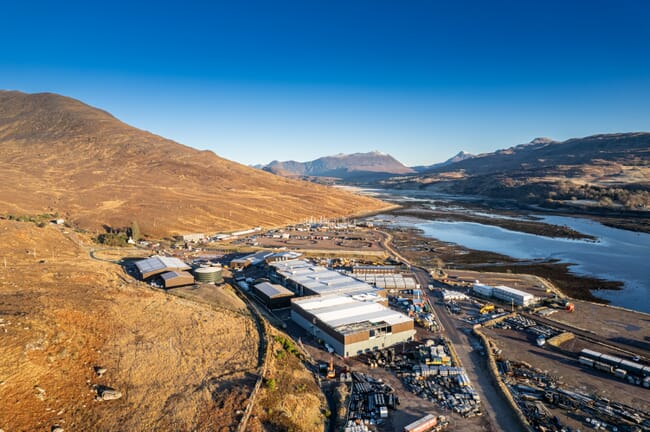
© Euan Myles
The Scottish Environmental Protection Agency (SEPA) has granted the first Waste Management Licence in Scotland for a hatchery pyrolysis unit to Bakkafrost Scotland, which has announced plans to build a new treatment system to create biochar from waste produced at its Applecross RAS facility.
The surplus material is a by-product of the wastewater treatment process, consisting of organic and inorganic solids held in the water. The process proposed by Bakkafrost dries the sludge and turns it into inert biochar, which can be used as a fertiliser and soil improver, refining the structure and water retention in soils.
“In a RAS facility, substantial quantities of unused ‘waste’ materials are generated, which must be separated from the water circulating back to the fish. Traditionally, that material has been considered waste, but technological advancements have opened the door to a more sustainable management process and that must be good news for helping protect our environment,” said Ian Laister, Bakkafrost Scotland managing director, in a press release.
“All of this is very much in line with Bakkafrost Scotland’s sustainability goals and supports building a circular economy from farm to fork,” he added.
In the first stage, hatchery waste, roughly 97 percent water, is treated through a filter belt. This reduces the water content of the material to about 80 percent, whilst the dry matter content is increased to about 20 percent.
The next stage, which requires the SEPA licensing as it incorporates a pyrolysis unit which dries sludge at about 300°C, processes the waste material into sludge pellets. These are then heated to 700°C without the presence of oxygen to create the final biochar product, which has a high stable carbon content.
The new project aligns with Bakkafrost Scotland’s previous commitment to play a leading role in the transformation of the aquaculture industry to ensure it is fit for the future with a significant investment programme over the next ten years designed to strengthen, grow, and transform the business.
Bakkafrost Scotland’s ambition for its RAS facilities is to reduce waste by 90 percent, to use 100 percent sustainable power and to reduce the water used in the process by 90 percent.




